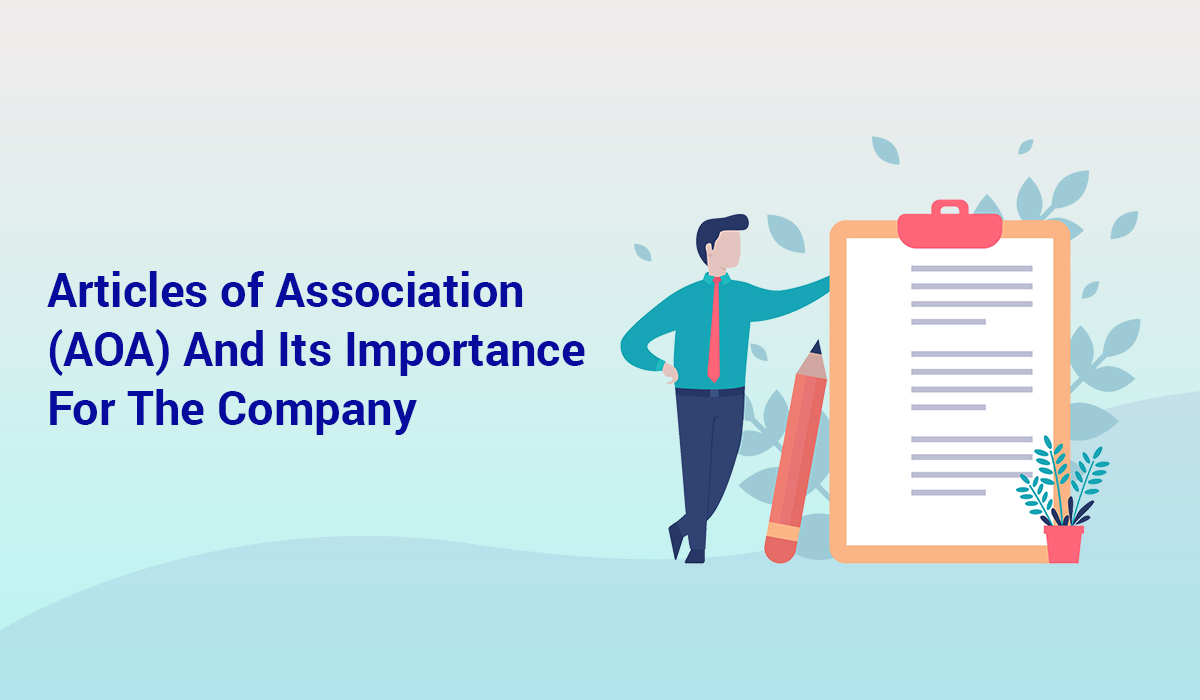WhistleBlower Policy in India – Ground Reporting

Khushboo Priya | Updated: Jan 10, 2019 | Category: Other Services
Let’s begin with a small survey with all of you enthusiasts. Suppose that there are two companies A and B. The company A has a policy where anybody can directly approach to the senior or head of the company be it the director, CEO or whoever for any complaint against fraud, unethical activities, malpractices, etc. While in the other company, employees have to follow the hierarchy for making any accusations or anything. Let’s understand the concept of WhistleBlower Policy in India.
So, according to you, which company has the better policy? We are sure that most of you will vote for the former one because it creates transparency among employee and others. And, this is indeed what we call Whistle Blower Policy. It allows employees to disclose information on any wrongdoing, mismanagement, etc. Let’s discuss the same in details-
Table of Contents
What is Whistle Blower Policy?
Whistle Blower Policy is a policy that has been formed to empower all employees within the organization to raise concern against any fraud and malpractices. Those can be unethical conduct, corruption, immoral, any security breaches, potential infractions of the code of conduct of the company, etc.
The policy ensures that employees can raise concerns against any violation easily and without any fear of retaliation, provided that they have raised the concern in good faith.
WhistleBlower Policy is a policy introduced by and within certain organizations to regulate company activities to fulfill ethical responsibilities.
Every company has its unique WhistleBlower Policy which describes the reporting procedure and investigation mechanism to be followed in case somebody blows the whistle for any wrong-doing or alert in the company.
What kind of complaints and grievances fall under Whistle Blower Policy?
The whistleblower can make complaints against anybody including the manager or whoever is responsible for any wrongdoings in the company. The malpractices of inappropriate behaviors include the following:
- Retaliation;
- Any security breach;
- Misuse of authority;
- Abuse of company funds or assets;
- Violation of company’s law or regulation;
- Manipulating company’s data or records;
- Violating contracts or breaking it in the midst;
- Sexual harassment against women or anybody;
- Corruption or bribery;
- Abuse of social media;
- Breach of company’s policy;
- Infringement of IT security and data privacy;
- Threat to public interest/national security;
- Leakage of confidential or propriety information;
- Financial breaches which can include fraud or suspected fraud or deficiencies in internal control and check or calculated error in preparations of financial statements or representing false reports;
- Negligence causing substantial and explicit danger to public health and safety.
We don’t know whether you have heard about the famous Vishaka’s case on sexual harassment. If this policy was implemented earlier, then the incident would have been avoided. Apart from this, there were many big scandals in different organizations. Hence, Whistle Blower Policy could be a wise approach for every organization.
Who are Whistle Blowers?
Whistle Blowers are individuals who reveal and expose details regarding any activity which is illegal, inappropriate, unethical, or not correct within an organization that is either private or public.
Whistle blowers can bring the allegations or information to the surface either internally or externally.
Internally, whistleblowers can bring their accusations to the attention of other people within the accused company such as immediate supervisors.
Externally, whistleblowers can bring the allegations to light by contacting a third party outside of an accused company such as the media, law enforcement, government, or those who are concerned.
Whistleblowers are always at the risk of facing strong reprisal and vengeance from those who are accused or alleged of wrongdoing. However, they always have choices for keeping their identity as secret.
WhistleBlower Policy in Company Act
With the introduction of the Companies Act 2013, the focus has always been towards fraud exclusion and to put an effective corporate vigilance mechanism. The Companies Act was revamped to eradicate several corporate scandals, loophole by prescribing more stringent compliance and norms than which were there earlier. The sections 206-229 of the Companies Act 2013 has incorporated detailed provision, which relates to the inspection, investigation, and injury.
Hence, if you observe closely, you will discover that the motto of the Companies Act 2013 is much similar to that of the WhistleBlowing Policy. Though the Act is quite enormous, it has many more details contained in each section. Later, we have discussed what sections are related to this policy and what authorities are responsible for the execution.
Rights or Responsibilities for WhistleBlower Policy
Till now we have learned what whistleblower policy truly means, who whistleblowers are, what complaints fall under the policy, etc. But there’s still something more important that most of us probably don’t know. And that’s what people are actually responsible for the execution of this policy. Well, that’s what we are going to discuss in this section.
Mainly, there are four to five entities that have the authority to execute this policy in the organization. Those are the following:
- Auditors: Generally, auditors are the entity appointed by a company to execute an audit. For being an auditor, a person is supposed to be certified by the regulatory authority of accounting and auditing or holds certain specified qualifications.
- Registrar of Companies (RoC) or Inspector: Under Section 208 of the Companies Act, the RoC appoints an inspector to examine records. The inspector has the authority to recommend and conduct an investigation in matters as required.
- Central Government: Under Section 10, the Central Government may order an inspection in the company affairs either on the report of Inspector or RoC or by a special resolution passed in which the matters of the company needs to be investigated if mentioned and for the public interest.
- Independent directors: Generally, Independent directors of the company are appointed by the registrar of companies. They come into play when there’s something big needs to be done. Independent directors of the company can be part of policy execution.
- SFIO: It stands for Serious Fraud Investigation Office is a statutory body that has the authority to arrest for offenses, which are particularized as frauds, and this is mentioned under 211 of the Act.
How SEBI Relates to Whistle Blowing Policy?
SEBI typically stands for the Securities Exchange Board of India and has its principles amended on corporate governance. Generally, it is provided in the standard listing agreement. The Annexure-I (D) or clause 49 of the listing agreement declares that the organization will have a mechanism for employees to inform the management about any concern or unethical behaviour which could be any suspected fraud or any kind of violence against company code of conduct or any ethical policies.
Moreover, the specified mechanism is supposed to protect against the victimization of employees. Employees availing this mechanism will also be offered direct access for the Chairman of the Audit Committee in exceptional cases.
The existence of such mechanisms must be intimated within the company. Though in India, companies don’t need to apply it mandatorily, however, the company will have mandatory requirements to disclose all its reports on corporate governance to extend the non-mandatory practices.
Advantages of Implementing the Whistle Blower Policy in the Organization
Before we discuss how to let us discuss who can benefit from the whistleblower policy. The policy is beneficial for the following entities:
- Employees in the organization;
- Shareholders of the company;
- The society; and
- The general public.
Now, let’s understand how the whistle blower policy is advantageous:
- The policy helps to abolish several ambiguities undergoing within the organization which is not known to the concerned person;
- To educate and make the employees aware of various wrongdoings which might take place in the organization;
- The policy helps to identify the risks and fights those risks with the efficient mechanism.
- It lets employees register direct complaints regarding the violation of the company’s code of conduct and also stipulates its results. Furthermore, it also reports of any violation of the policy.
- The policy lets organizations figure out those who are guilty of wrongdoings and lets them punish the people.
Loopholes Related to the policy in India
Despite the fact that whistle blowing policy has so much of advantages, it is sad that many companies don’t have this policy implemented within their organization. Hence, there are many loopholes regarding this policy which are as follows:
- Not mandatory: Since now we are aware of how much important it is to execute this policy in the organization. Still, in India, it’s not mandatory to administer the policy. However, the government must make it a mandate.
- No awareness: There are many companies that even don’t know what whistle blower policy exactly is which implies people aren’t aware of this policy, and hence, it’s another loophole.
- Lack of strict execution or proper procedure: And this is one of the biggest loopholes really. There are many companies that have implemented the policy, but it’s not followed strictly.
How does WhistleBlower Policy look like?
When the things aren’t going right in the organization, and it remains unblown, then the company can incur tremendous financial loses or can lead to brand disruption.
Appropriate whistle blowing legislation is supposed to reinforce it and support a culture of openness, integrity, and commitment.
Scope of this Policy
The foremost requirement for a whistle blowing policy to be perfect and accurate is that it must have all the anonymity of details in which the whistleblower feels secure and safe.
Another scope of whistle blowing policy is to eradicate unethical practices which wreck the economy and morality and didn’t gulp the bitter pill of the extra burden of trifling grievances. If you want to register Private Limited company, then first check the complete process, benefits and documentation.
Eventually, the policy must be inclined towards the desires of treating the employees fairly. Initiating both ways of communication will not only clear the communication channel but will also abolish doubts and generate trusts.
Ground Reporting on Whistle Blower Policy
According to certain surveys regarding Whistle Blower Policy, the reports say that:
- 71% of the organizations have a formal whistle blowing mechanism in place.
- 32% of the respondents (who don’t have a grievance mechanism in place) expressed strongly to implement a grievance reporting mechanism to report corporate misconduct.
- 60% of those who have a grievance mechanism in place affirmed the seriousness of their organization to implement an effective system.
Takeaway
After reading the complete blog, this is clear that the Whistle Blower Policy is nothing but for the well-being of the organization only. It can save companies from any fraud, infringement, corruption, mismanagement, etc. The person blowing the whistle or one who informs the management or the concerned person about the accused is known as Whistleblower.
Last but not least, every company in India or around the world must implement this policy so that no frauds can take place within the organization which could lead to serious concerns.














